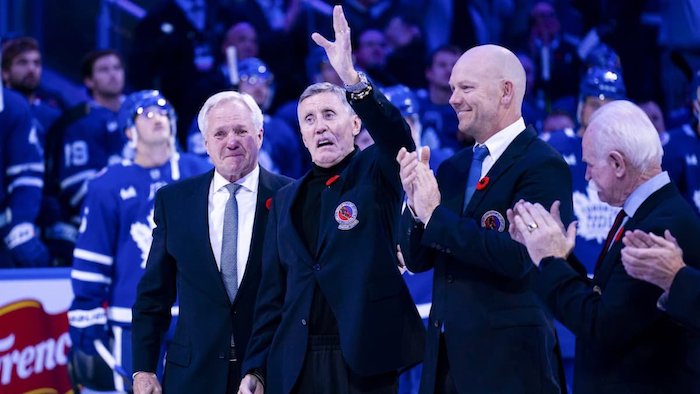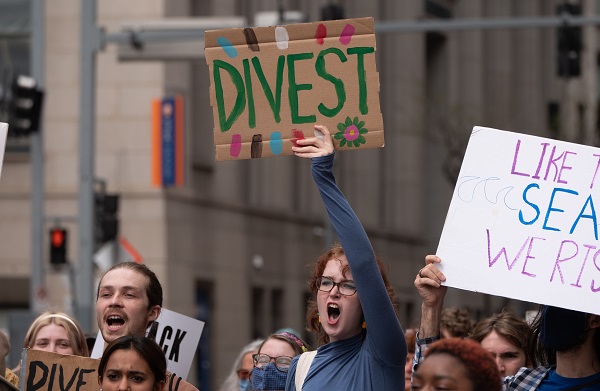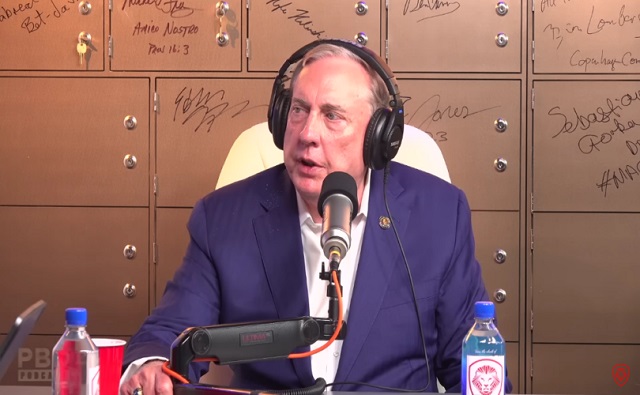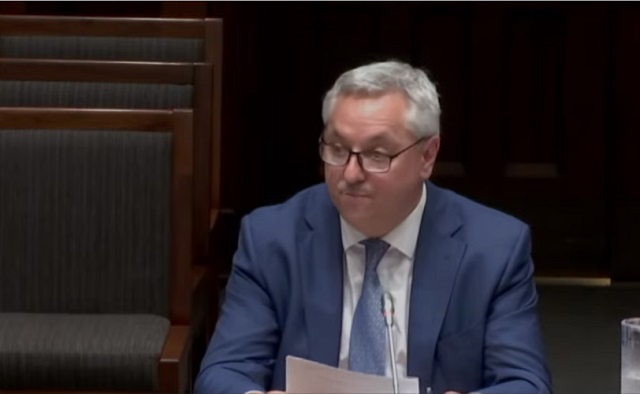Bruce Dowbiggin
Sombre Salming Tribute A Reminder That Global Play Is Being Tarnished

Sign up today for Not The Public Broadcaster newsletters. Hot takes/ cool slants on sports and current affairs. Have the latest columns delivered to your mail box. Tell your friends to join, too. Always provocative, always independent.
There are moments that only the world of sports can do justice. Plot lines that would be laughed at in story meetings are acceptable in sports. As they said for decades on Wide World of Sports, “The thrill of victory, the agony of defeat…”
Case in point: The two nights this November in which NHL Hall of Fame defenceman Borje Salming returned to his hockey home in Toronto for a sombre farewell to Maple Leafs fans. Stricken with cruel ALS, Salming found the strength to appear publicly on consecutive nights with former team mates in scenes that would make even the hardest heart weep. [Full disclosure: We lost our brother-in-law to ALS and now our closest friend is battling the disease]
Supported by his former team captain, a weeping Darryl Sittler, Salming did his best to absorb the love from Leafs Nation at the Scotiabank Centre. A touching video of his heroics played as Salming dropped the ceremonial puck before the Toronto/ Vancouver contest.
His afflicted face reflected the cruelty of what is widely known as Lou Gehrig disease. (In a move only a Centre of the Universe fan can make, someone suggested that, because Gehrig played a century ago, the disease should now be known as Borne Salming disease so younger people can get cozy with it. Please.)
For those too young to have seen Salming in his prime, he was the template of the Swedish NHL defenceman to come. Arriving in a league hostile to anyone but Canadian players, he rose to the top at his position despite the chaos behind the scenes with the Harold Ballard’s Leafs. Think a more physical Nicklas Lidstrom, a more stylish Victor Hedman, a shot-blocking Erik Karlsson.
Long and lean, he was courageous in a time when Swedes, in the mocking words of Ballard, were said to go into the corner with eggs in their pocket and not break one. Borje stopped that talk. He put up 787 points during his career and made so many teammates look better playing next to him.
For an organization tortured by Ballard’s antics and continued mismanagement Salming was a beacon of hope for fans who have not seen even a Stanley Cup final series appearance since 1967. With Sittler and Lanny McDonald he offered a chance for respectability. A chance that— through no fault of Salming’s— never arrived.
Testament to how respected he was Salming was never a target of abuse from rival fans. His skill and courage— he once absorbed 200-plus stitches in his face to repair a hideous skate gash and played three days latter— was admired even in super-rival Montreal. When he had personal substance problems, he was never mocked by even the most bitter foes.
Salming arrived just as international hockey became a thing with the 1972 Canada/ USSR series. The trickle of players like Salming soon became a steady flow of Europeans that culminated in the eventual arrival of Russians and other Soviet Bloc players in the 1980s and ‘90s. International games at the Canada Cup, Rendezvous Series and Olympics became the greatest contests many fans ever saw.
 TURIN, ITALY – FEBRUARY 24: Nicklas Lidstrom #5 of Sweden shake hands with Ales Kotalik #22 of Czech Republic after they won the semi final of the men’s ice hockey match between Sweden and Czech Republic during Day 14 of the Turin 2006 Winter Olympic Games on February 24, 2006 at the Palasport Olimpico in Turin, Italy. Sweden won 7-3 to reach the final. (Photo by Brian Bahr/Getty Images)
TURIN, ITALY – FEBRUARY 24: Nicklas Lidstrom #5 of Sweden shake hands with Ales Kotalik #22 of Czech Republic after they won the semi final of the men’s ice hockey match between Sweden and Czech Republic during Day 14 of the Turin 2006 Winter Olympic Games on February 24, 2006 at the Palasport Olimpico in Turin, Italy. Sweden won 7-3 to reach the final. (Photo by Brian Bahr/Getty Images)
Somehow the NHL has lost the thread on international hockey. Proof positive was the news last week that the league and the NHLPA have discontinued plans for a World Cup of Hockey in 2024. Usually the sticking point in getting a WC and Olympics has been the location of the tournament or interrupting a season.
But this time the problem is, like so much these days, the war in Ukraine and Covid protocols. Put simply, the Czechs and Slovaks will not play in any tournament in which a Putin-led Russia is a participant. Legendary Czech goalie Dominik Hašek said as much recently. His country of Czechia will not participate until Putin’s vicious incursion in Ukraine is ended.
In a tweet salvo, Hasek wrote: “The NHL must immediately suspend contracts for all Russian players! Every athlete represents not only himself and his club, but also his country and its values and actions. That is a fact. If the NHL does not do so, it has indirect co-responsibility for the dead in Ukraine.
“I also want to write, that I am very sorry for those Russian athletes, who condemn V. Putin and his Russian aggression in Ukraine. However, at the moment I also consider their exclusion a necessity.”
For Hasek and others, memories of the Soviet Bloc are still too fresh in large parts of Europe to pretend that it’s business-as-usual when it comes to dealing with megalomaniac Russian leaders. If there were a WC in 2024— and Putin still rules in Moscow— it would be minus either the Russians or their (justifiably) fearful neighbours in eastern Europe.

Additionally, the spectre of bureaucratic overreach on the Covid virus in many Western nations remains an impediment to any large sports gathering. Already this fall we can see the purveyors of masking and lockdowns gearing up for another run at imposing themselves on a public weary of their draconian solutions.
Poling this week in Canada by the official pollster of CTV— a recipient of federal funds— suggests that well over 50 percent of the population favours a return to indoor mask mandates. Teachers unions continue to agitate for locking down schools this winter should it prove an aggressive respiratory season again. There are also rumbles of mandatory vaccinations again, despite the evidence of injuries suffered by those who took the vaccines.
While these moves will generate far more backlash than when they were first imposed in 2020-21 the red tape involved in circumventing the diehards’ tactics would also create delays and more.
No one asked Salming his thoughts on the Ukraine conflict or Covid-19. Probably a good thing. But he would no doubt be happy to see the resumption of International play as a by-product of peace in the region.
Bruce Dowbiggin @dowbboy is the editor of Not The Public Broadcaster A two-time winner of the Gemini Award as Canada’s top television sports broadcaster, he’s a regular contributor to Sirius XM Canada Talks Ch. 167. Inexact Science: The Six Most Compelling Draft YearsIn NHL History, his new book with his son Evan, was voted the seventh-best professional hockey book of all time by bookauthority.org . His 2004 book Money Players was voted sixth best on the same list, and is available via http://brucedowbigginbooks.ca/book-personalaccount.aspx
Bruce Dowbiggin
Coyotes Ugly: The Sad Obsession Of Gary Bettman

It came to this. Playing in the 6,000 seat Mullet Arena on the campus of Arizona State. Owned by a luckless guy who eschewed the public spotlight. Out of the playoffs, their bags packed for who knows where, the Arizona (née Phoenix) Coyotes gave an appreciative wave to the tiny crowd gathered to say Thanks For The Memories.
With that they were history. Although NHL commissioner-for-life Gary Bettman has promised the last in a set of hapless owners that he can revive the franchise for a cool billion should he build the rink that no one was willing to build for the Yotes the past 20 years.
The Arizona Republic said good riddance. “Metro Phoenix lost the Coyotes because we are an oversaturated professional and college sports market with an endless supply of sunshine and recreational choices. Arizona may have dodged a slapshot:
We have the NFL Cardinals, the MLB Diamondbacks, the NBA Suns, MLB spring training, the WM Phoenix Open, the Phoenix Rising, the WNBA Mercury, the Indoor Football League Rattlers and the Arizona State Sun Devils. There hasn’t been a household name on the Coyotes since Shane Doan, and half of Phoenix probably doesn’t know who he was”.
Likely they’ll be a financial success in Salt Lake City where there’s a viable owner, lots of money and a will to make it work. They’ll need a will because— stop me if you’ve heard this before about the Coyotes— the rink they’ll play in this fall has only 12,500 unobstructed views for hockey.
Watching this farce we recalled getting a call from Blackberry co-founder Jim Balsillie in 2008, shortly after our book Money Players was a finalist for the Canadian Business Book of The Year. We’d written a fair bit about the Coyotes in our work and someone had told Balsillie we might be the ones to talk to about a plan he was concocting to buy the bankrupt Coyotes and eventually move them to Hamilton.

Balsillie was salty over the way he’d been used as a stalking horse in the financial troubles of the Pittsburgh Penguins in 1990s. Flush with money from the huge success of RIM, Balsillie offered to buy the Pens, with an eye to moving them to southern Ontario if Pittsburgh didn’t help build a new arena for the team.
In time, Balsillie saw that Bettman was only trying to protect the investment Mario Lemieux and others had in the Pens. Balsillie was the black hat who eventually spooked Pittsburgh into giving the current owners what they wanted. At the end of the day, Mario got his money and Balsillie was given a “thanks for trying”: parting gift of nebulous promises.
Still smarting, Balsille vowed not to be used again. in his desire to bring the NHL to southern Ontario. So when the Coyotes owner Jerry Moyes threw the keys to the team on Bettman’s desk, he saw an opening in the bankruptcy that followed. Seeing Bettman as the impediment, Balsillie decided to buy the team out of bankruptcy, a process the NHL could not legally prevent.
What Balsillie wanted to know was “What then? How would Bettman fight back?” We told him that no one flouts Bettman’s authority within the NHL. (All the current owners since 1993 have come aboard on his watch.) And that he’d have to get the Board of Governors to approve his purchase. Odds: Nil.
That’s what happened. Rather than admit that the Valley of the Sun was poisoned for hockey, Bettman found another series of undercapitalized marks to front the franchise while the league quietly propped up the operation. No longer was the Coyotes’ failure about the fans of Arizona. It was about Gary Bettman’s pride.

Protestors stand outside a press conference in Tempe featuring Arizona Coyotes executives discussing propositions related to a new arena and entertainment district. (Photo by Brooklyn Hall/ Cronkite News)
Where he had meekly let Atlanta move to Winnipeg he fought like hell to save Arizona. And his power. (His obstinacy on U.S. network TV is another story.)
Fast forward to last week and the abject failure of that process. The Arizona Republic naively fawned on Bettman for his many attempts to save the team. In fact, they were just attempts to buttress his grip on the league. While the Coyotes may have been a mess, Bettman has succeeded in preserving the investments of most of the business people who bought his NHL business prospectus.
Sometimes it meant riding into Calgary to chastise the locals for their parsimony in not giving the Flames a new rink. Ditto for Edmonton. Ditto for Winnipeg and other cities. Other times it was to shore up weak partners to protect the equity of other prosperous cities. Sometimes it was to tell Quebec City, “Not gonna’ happen.”
For his loyalty to the owners and through some luck— Gretzky to the Kings— Bettman has made the NHL work in places no one might’ve imagined. Nashville. Raleigh. Tampa. Las Vegas. Dallas. Not at the level of the NFL, NBA or MLB, but at a comfortable equity-affirming status. Nothing happens without his say-so in the NHL. Or without him getting credit. Secondary NHL execs who wanted credit for their innovations were quietly punted.
When Houston finally gets a franchise from Gary they’ll part with $1.5 billion for the honour. While the commissioner has played down new franchises and expanded playoffs, you can bet your last dollar that he’s told owners they’re in line for more expansion cash— cash they don’t have to split with players in collective bargaining.
One more certainty. As long as Bettman rules the NHL you won’t see an NHL team back in Arizona.
Bruce Dowbiggin @dowbboy is the editor of Not The Public Broadcaster A two-time winner of the Gemini Award as Canada’s top television sports broadcaster, he’s a regular contributor to Sirius XM Canada Talks Ch. 167. Inexact Science: The Six Most Compelling Draft Years In NHL History, his new book with his son Evan, was voted the seventh-best professional hockey book of all time by bookauthority.org . His 2004 book Money Players was voted sixth best on the same list, and is available via brucedowbigginbooks.ca.
Bruce Dowbiggin
Why Are Canadian Mayors So Far Left And Out Of Touch?

‘The City of Edmonton pays for a 22-person climate team but doesn’t know who on that team is responsible for what, or what that team has accomplished. Meanwhile, Council takes a pay raise and bumps our property taxes by 8.6%” @michaelistuart
We just returned from a long trip to discover that the City of Calgary wants to potentially re-zone our neighbourhood. Bridle Estates is a collection of 175 bungalow villas for people aged 55-plus. While some people still work most of the inhabitants are retirees. The city’s earnest idea is to create low-cost housing for the tens of thousands arriving here in the city from away.
You can see why a city hall obsessed with white privilege wants to democratize our neck of the south-west corner of the city. Enforced justice has a great tradition. 1970s American cities decided that bussing was the antidote to segregation. After a SCOTUS decision allowing the practice in 1971 (back when liberals owned the court) progressives pushed through an aggressive plan to bus kids from the inner city to the leafy suburbs. And vice versa.
It worked like a charm. For conservatives, that is. It radicalized a generation of voters who soon installed Ronald Reagan as president, and empty buses went back to the depot. The Democrats went from the party of the people to the party people in Hollywood. With time dulling memories, contemporary Woke folk are reviving the integration dream. This time the mostly white suburbs will bear the brunt of the government’s immigration fixation (400K-plus in the third quarter).

There are meetings planned where citizens will be able to address their elected officials— no doubt in a respectful voice. But anyone who’s dealt with Climate Crisis Barbie— Mayor Jyoti Gondek— has much optimism. This is a mayor who exploited a three-way split in centre-right voting here to declare a Climate Emergency on her first day in office.
Then she rolled out hate-speech laws to protect her from being razzed in public. For this and other fabulist blunders— her messing with the new arena project drove a worse deal and a two-year delay in a home for the Calgary Flames— she faced a recall project (which failed to collect over 400K voters’ signatures).
With a housing bubble expanding everyday, Her Tone Deafness has decided that owning a home is so passé. ”We are starting to see a segment of the population reject this idea of owning a home and they are moving towards rental, because it gives them more freedom.” She added that people have become “much more liberated around what housing looks like and what the tenure of housing looks like.”
As the Calgary’s schmozzles and Edmonton’s dabble in climate extravagance illustrate the municipal level of government in Canada is a few lobsters shy of a clambake. Across the country major cities are in the hands of radical NDP soldiers or virtue warriors who would rather have symbols than sewers to talk about.
In Toronto, Jack Layton’s widow Olivia Chow is leveraging her 37 percent mandate to make Toronto a kinder, Wok-er city. In Vancouver and Victoria, B.C., the open-air drug agendas of new mayors and city councils have sent capital fleeing elsewhere. Despite crime and construction chaos, Montreal mayor Valerie Plante won a second term, by emphasizing her gender.

In times when the coffers were full, this ESG theatre might have been a simple inconvenience. But since the federal and provincial governments began shoving responsibilities and costs downward to municipalities there is no wiggle room for grandstanding politicians at the city level. Or for hapless amateurs.
With the public incensed over residential property tax increases on one side and the blandishments of aggressive developers on the other, competent governance has never been more needed in the urban areas. While feds can (and have) printed money to escape their headaches and the provinces can offload costs onto the cities, the municipalities have no room for risk.
The time bomb in this equation is the debt load that the three levels can sustain. After this week’s budget, federal spending is up $238B, or 80 percent since 2015. Coming off this free-spending budget the feds have pushed the federal debt to more than $1.2 trillion this year (in 2015, the debt was $616 billion.) None of the provinces has shown any appetite for the 1990s-style cuts to reduce their indebtedness. Leaving cities to crank the property-tax handle again.
So far, Canada’s cities have been able to use friendly municipal bonds to ease their fiscal problems. But if the Canadian economy continues its tepid performance with no reduction in debt, financial experts tell us that there could be a flight from Canadian municipal bonds— with a consequent spike in interest rates elsewhere.
The backlash on free-spending governments will be severe— and restricted municipalities will be hardest hit. None of this is resonating with Canadians still flush with cash from Covid. The stock markets are still buoyant and those living in cashbox houses are counting their dividends. Willful denial is the Trudeau legacy.

Which is why so many Canadian were shocked last week when American AntiTrump media star Bill Maher did an intervention on Canadian conceits. Using the True North as his warning to America, Maher ripped apart the gauzy leftist dream of Canada as the perfect society, the Sweden north of Estevan. By the time he was done, the single-payer myth was bleeding on the ground.
Maher knows that the bill is coming due for free-spending Canada and its climate charlatans. (The IMF is already warning of a global crisis over debt loads.) The question is: will Canadians come to the same conclusion before it’s too late to save the cities?
Bruce Dowbiggin @dowbboy is the editor of Not The Public Broadcaster A two-time winner of the Gemini Award as Canada’s top television sports broadcaster, he’s a regular contributor to Sirius XM Canada Talks Ch. 167. His new book Deal With It: The Trades That Stunned The NHL And Changed hockey is now available on Amazon. Inexact Science: The Six Most Compelling Draft Years In NHL History, his previous book with his son Evan, was voted the seventh-best professional hockey book of all time by bookauthority.org . His 2004 book Money Players was voted sixth best on the same list, and is available via brucedowbigginbooks.ca.
-

 International2 days ago
International2 days agoUN attacks stay-at-home motherhood as ‘gender inequality’
-

 Censorship Industrial Complex23 hours ago
Censorship Industrial Complex23 hours agoDesperate Liberals move to stop MPs from calling Trudeau ‘corrupt’
-

 COVID-192 days ago
COVID-192 days agoWHO Official Admits the Truth About Passports
-

 Alberta2 days ago
Alberta2 days agoProvince to stop municipalities overcharging on utility bills
-

 Energy2 days ago
Energy2 days agoAnti-LNG activists have decided that they now actually care for LNG investors after years of calling to divest
-

 Brownstone Institute2 days ago
Brownstone Institute2 days agoA Coup Without Firing a Shot
-

 conflict1 day ago
conflict1 day agoCol. Douglas Macgregor: US is ‘facing disaster’ as it funds overseas wars while bankrupt
-

 Business14 hours ago
Business14 hours agoFederal government’s ‘fudget budget’ relies on fanciful assumptions of productivity growth









